Why is working “upstream first” crucial in open source? When was the last time you backed up your files? What do you wish you knew before getting involved in open source?
We planted these thought-starters throughout our Twitter feed seeking the community’s opinions. As it turns out, you had plenty to say. And while you know how YOU answered, how did your answers stack up with the rest of the community? Let’s take a look.
Diverse ideas are the best part of working upstream
What does it mean to work upstream first? In open source, working upstream means working where the source code resides. By starting at the source, you have the opportunity to collaborate with a larger, more diverse stakeholder community and together build new features, patches, releases, and content. In this environment, you’ll benefit from exposure to a more diverse set of ideas and from those looking to make a meaningful contribution to a project and who may be able to improve upon your original idea. By working upstream first, you have the opportunity to vet ideas with the larger community and work together to build new features, releases, etc. These changes can coincidentally have more impact and influence on the overall project.
When we asked you to weigh in on which of these benefits you love most, the ability to hear diverse perspectives just barely pulled ahead of the competition. It’s safe to say that when it comes to determining the best part about working upstream, all the benefits are well received by the open source community.
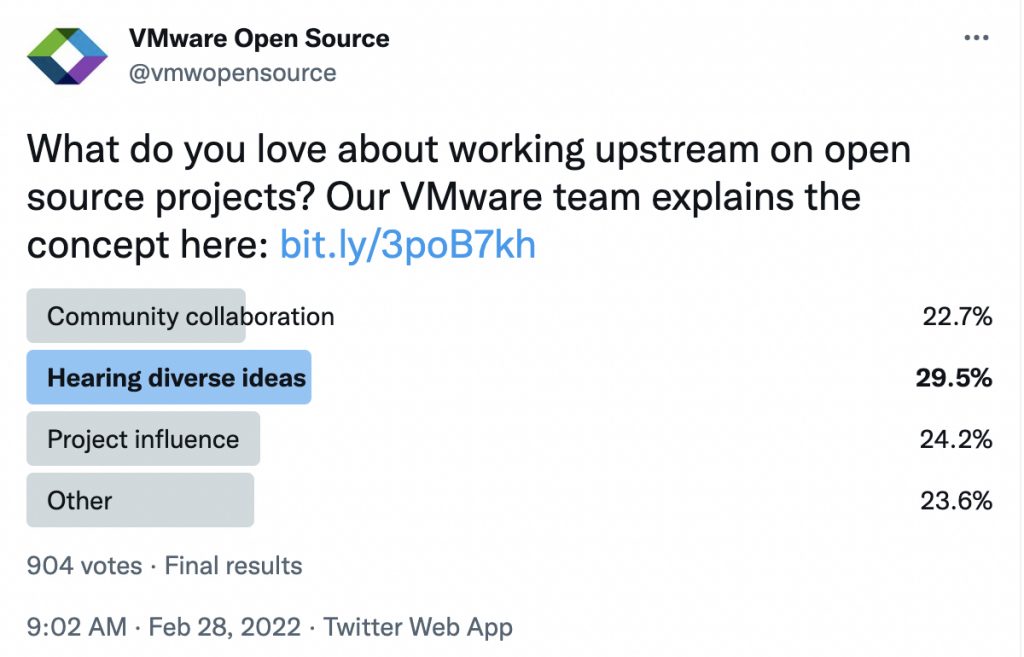
Working upstream yields faster implementation
We’ve all heard the saying “time is money.” When it comes to open source, working upstream can mean the difference between your feature or patch being implemented in a timely manner or facing difficulties integrating your changes into the project.
When we asked you to weigh in on why working upstream first is crucial in open source, the majority of you agreed that faster implementation was at the top of your priorities list. Watch this video to learn why Rose Judge thinks working upstream is important and how she has contributed upstream at VMware.
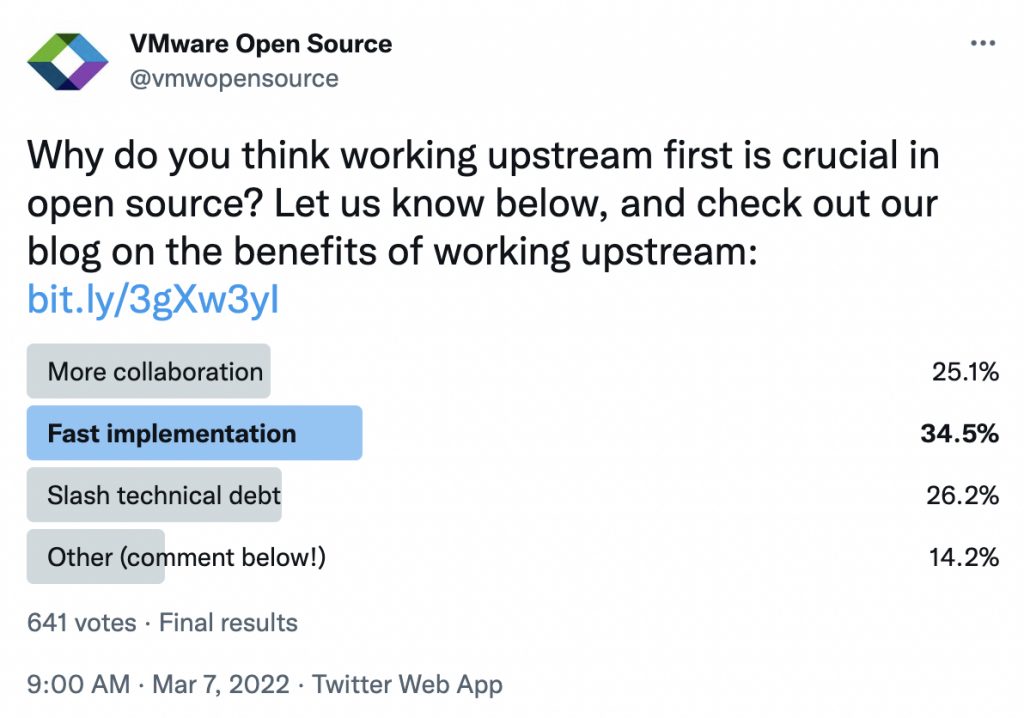
Pie? Probably more popular than memorizing pi
Last month, we celebrated Pi Day, the annual celebration of the mathematical constant π (pi). To commemorate the famous 3.14 (March 14th), we took to Twitter to ask you how many digits of pi you have memorized.
Although working upstream seems to be a top priority for the open source community, memorizing the infinite string of numbers that make up pi is not, with all respondents stating they can list less than ten. Maybe the tides would shift if we asked how many flavors of pie you have memorized…

Get ahead in open source by learning Git
There are so many perks to making open source contributions: you can give back to the community, build your resume, and meet great people in the tech industry. But getting started with code contribution in open source can be intimidating if you don’t know where to start.
To provide new contributors with some insight on how to best ease into contribution, we asked you to share what you wish you knew before getting involved in open source. It was another close race, but the majority agreed that Git is the most helpful place to start. For more information, read Anna Jung’s blog on five things you should know before getting into open source.
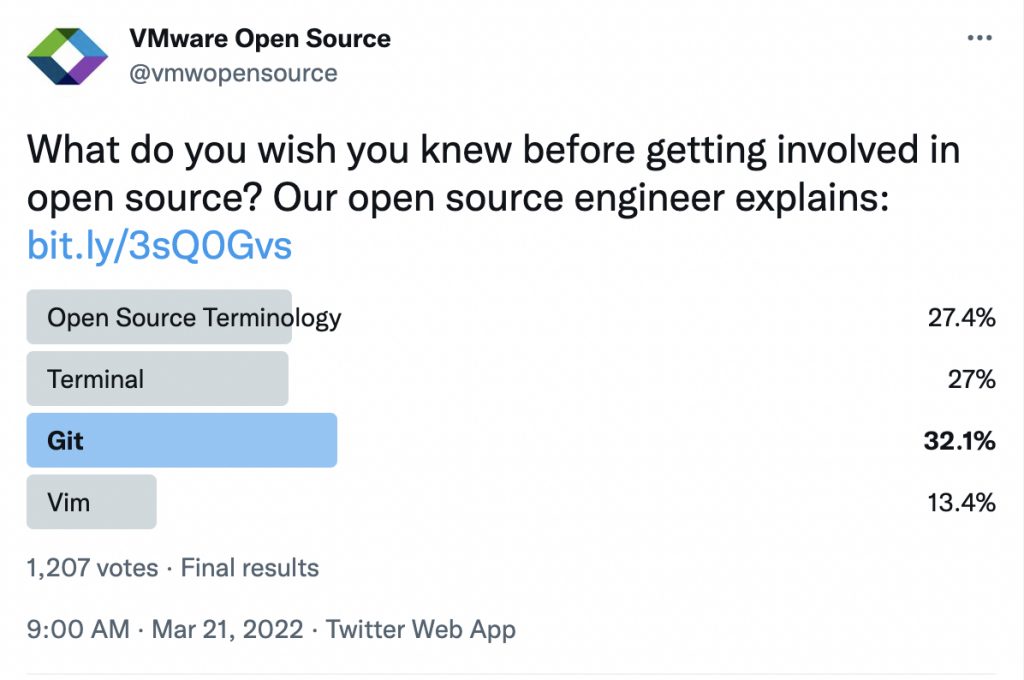
Supply chain security is, in fact, a journey
In part one of his blog on securing the software supply chain, Joshua Lock outlined some key best practices. When we asked where each of you were on your software supply chain security journey, the majority of you concluded that you were following deterministic build processes. Only a deterministic build system can provide the stable foundation to build a secure software supply chain, so it’s great to hear that many of you have made this a priority. The next step? Heighten defense against supply chain attacks.
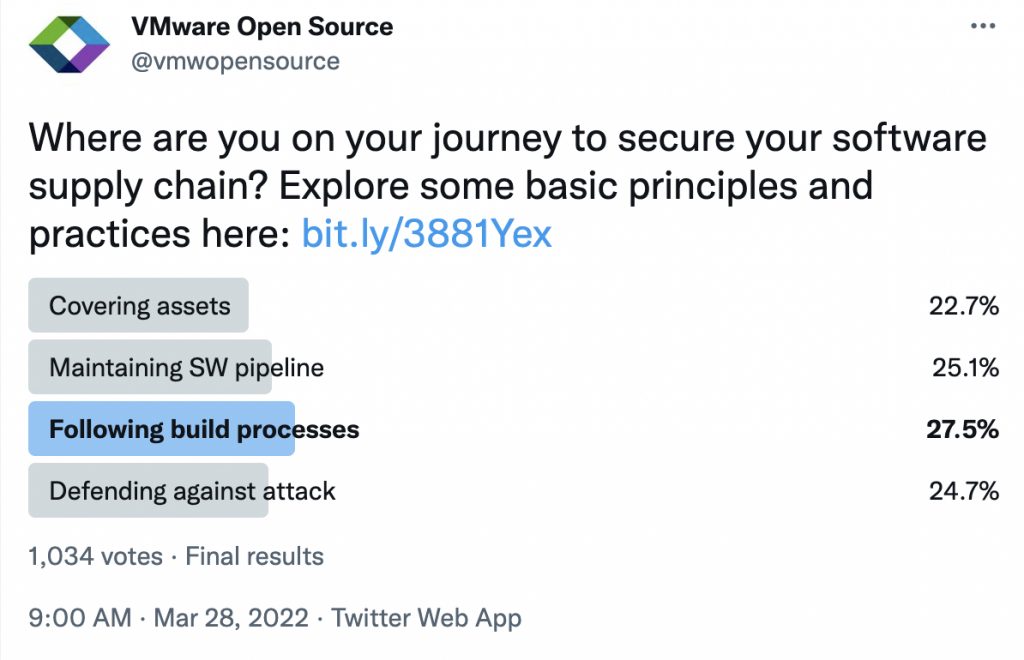
Survey says: it’s time to back up your files
When you hear those stories of people getting years worth of data wiped from their devices, you might think, “That will never happen to me.” However, this situation is more common than most people assume. More than 60 million computers will fail worldwide this year, and over 200,000 smartphones are lost or stolen every year – yikes!
Turns out there’s a simple solution to ensure you won’t be left without your precious data: backing up your files. On World Backup Day, we took to Twitter to see when the last time our followers had backed up their data. As it turns out, many of you are due for a backup – consider this your gentle reminder!
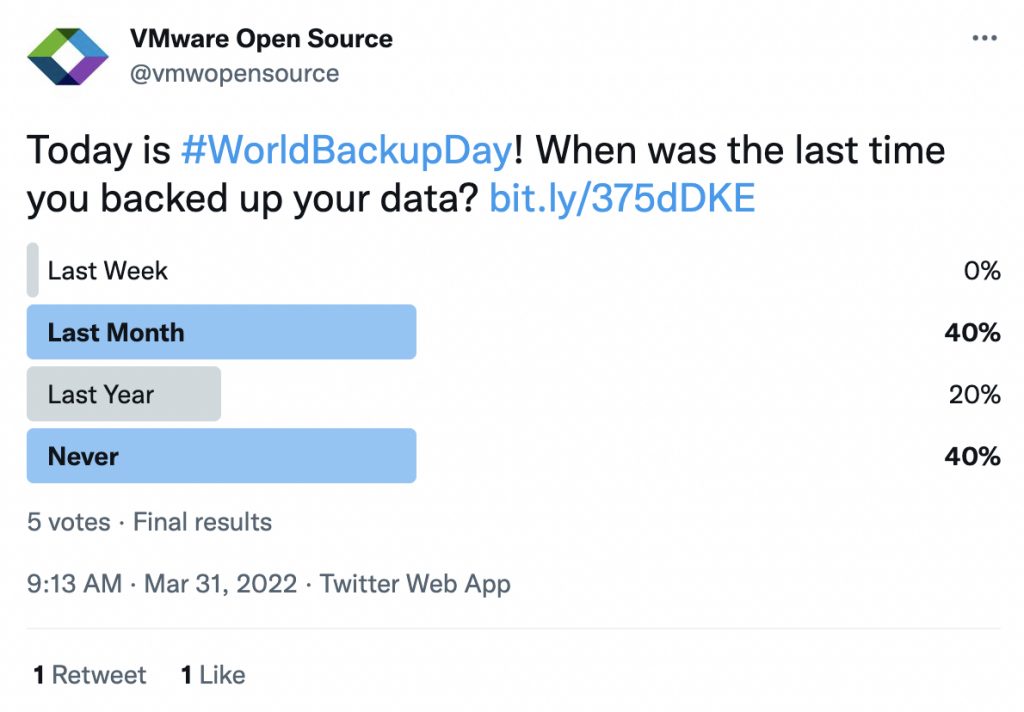
For more updates on open source community sentiment, check back for our next poll recap on the Open Source Blog and stay tuned for new polls on our Twitter channel (@vmwopensource).






